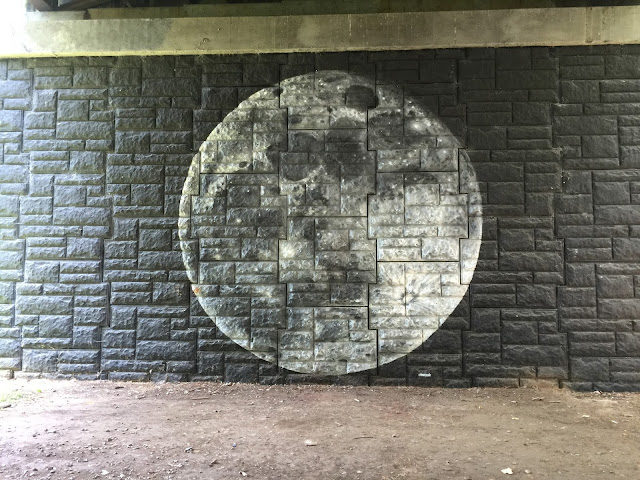I distrust people who take one passage from the Christian Bible and then try and make an argument that the whole rest of the book should be understood through their interpretation of that one passage, so I won't do it. But I do want to single out the opening lines of the Gospel of John for more discussion, not to try to reinterpret Christian thought but, like the devil himself, to use it for my own purposes.
John 1:1 - "In the beginning was the Word, and the Word was with God and the Word was God."
I understand that the term "Word" was a translation of the Greek logos (Λόγος). Whatever logos meant to John, to the Greek Stoics before him, logos was the active reason pervading and animating the entirety of the universe. It was usually identified with the divine and Nature, but to the Stoics, logos was the force behind all animate and inanimate matter, and every human possessed a portion of the divine logos. Whatever might become of a person, nothing or no one could take away that divine spark, that logos, than animated one's existence.
If we assume that John was familiar with Greek philosophy, particularly Stoic philosophy, then his opening passage takes on new light. Logos was with God in the beginning and God himself was logos, and as logos now pervades the whole of space, nothing in the universe is separate from anything else in the universe, and both God and man are logos, and the sacred and the profane are both part of one continuum.
John wrote his text some 300 years after Zeno started the Stoic school of philosophy, and sometime between Zeno and John, Buddhism began to embrace the notion that all things were of one nature, which they respectfully referred to as "buddha-nature". All things not only had buddha-nature, they taught, but all things in the universe, both divine and mortal, were nothing but buddha-nature manifesting itself in the myriad forms found through the cosmos.
There are certainly differences in aspects of Stoicism and Buddhism, and clearly Christianity, even Gnostic Christianity, is different than these two, but all seem to be pointing at an enlightened understanding that all things are cut from the same cloth. I sometimes think of it as cookie dough - like animal crackers, things can take on several different shapes and forms, but deep down, they're all cookie dough. Taking a modern, scientific view, we can say that deep down all things are nothing but atoms and looking deeper, atoms are made up of neutrons and protons and electrons, and those are made of, I don't know, quarks or something, and quarks or whatever are composed of strings or string-like matter. It's turtles all the way down, but through whichever lens we choose, we see that when examined closely enough, the difference between things, the separation between this and that, between self and other, object and observer, begins to break down.
To avoid confusion with Buddhism or Stoicism or Christian mysticism or quantum physics, I refer to the base material of all matter, the substrate of existence, as potential, italicized to distinguish it from more mundane interpretations of the term.


No comments:
Post a Comment